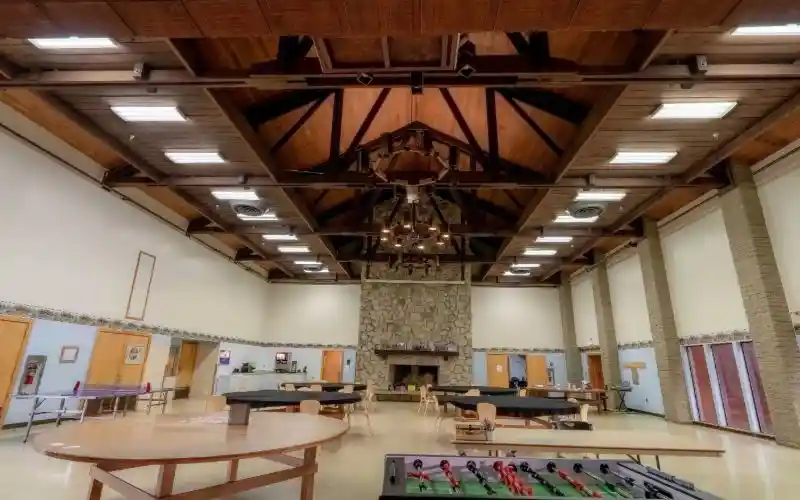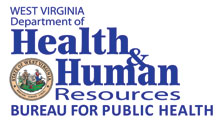
Walker, West Virginia, United States
Harmony Ridge Recovery Center
Verified
Verified
This provider’s information has been quality-checked by Recovery.com’s Research Team for accuracy and completeness, including center verification through appropriate third-party organizations.
Joint Commission Accredited
The Joint Commission accreditation is a voluntary, objective process that evaluates and accredits healthcare organizations (like treatment centers) based on performance standards designed to improve quality and safety for patients. To be accredited means the treatment center has been found to meet the Commission's standards for quality and safety in patient care.
Provider's Policy
Depending on your state and the health plan you have, some behavioral health benefits may vary. Some providers cover part or all of the costs of rehab so you can get the help you need to get and stay sober.
Estimated Cash Pay Rate
The cost listed here ($15,000 ) is an estimate of the cash pay price. Center pricing can vary based on program and length of stay. Contact the center for more information. Recovery.com strives for price transparency so you can make an informed decision.
Highlights from the Center
Highlights
These highlights are provided by and paid for by the center.
Customized Treatment Plans
Perfect for Professionals
On-site Medical Detox
Tech Friendly
About Harmony Ridge Recovery Center
Harmony Recovery Center approaches addiction and co-occurring mental health disorders with an evidence-based approach that incorporates 12-Step philosophies and holistic therapy. Research shows that a one-size-fits-all approach to drug and alcohol addiction treatment is not effective, which is why each client at Harmony Ridge Recovery Center receives a fully customized treatment plan.
Comprehensive Plans For Each Client
Plans at Harmony Ridge cater to clients’ mental, physical, and spiritual needs to provide full-bodied care. By utilizing a combination of 24-hour medical care and evidenced-based therapies, Harmony Ridge has helped countless individuals heal from alcoholism, drug addiction, and co-occurring disorders.
Qualified, Empathetic Staff
Many of Harmony Ridge’s staff are working through active sobriety and truly understand the nature of addiction, and the recovery process. The qualifications and knowledge of their staff combine well with their empathy, compassion, and understanding. Harmony’s staff are devoted to making each client feel heard and confident in their recovery.
Heal Among Nature
Harmony Ridge uses their surroundings to their full potential, going on hikes, spending time around the campfire, or kayaking at a nearby lake. Being set in Mountwood Park, their residences are surrounded by trees, animal friends, and an overall feeling of peaceful escape. Life pauses at Harmony Ridge Recovery, allowing for a complete focus on recovering and healing. For those who need more flexibility outside of residential care, Harmony Ridge also provides Day Treatments and outpatient programs.
Harmony Ridge Recovery Center has been awarded the nationally-recognized Joint Commissions Gold Seal of Approval and is licensed by the West Virginia Department of Health and Human Resources. Harmony Ridge Recovery Center accepts insurance and West Virginia medicaid.
Read More

Insurance Accepted
Provider's Policy:Depending on your state and the health plan you have, some behavioral health benefits may vary. Some providers cover part or all of the costs of rehab so you can get the help you need to get and stay sober.
Secluded and Peaceful Setting
Harmony Ridge Recovery is nestled in the gorgeous mountains of West Virginia, featuring amenities like a full cafeteria, adventure therapy, basketball courts, and a fitness room. They offer fun outdoor activities like frisbee, hiking, canoeing, and yoga–just to name a few. Their lake is stocked with trout for clients who enjoy fishing.
Full Levels Of Care
The goal at Harmony Ridge is to inform potential clients about all the levels of care they provide. This approach helps connect a treatment modality to each person who seeks one, regardless of time commitments, preferences, or location. Harmony Ridge runs at a 10:7 staff-to-client ratio, which helps make recovery a central focus during each day of treatment.
Individualized Treatment
Harmony Ridge Recovery Center believes that everyone deserves a life free from the restrictions of drug and alcohol addiction. Thousands of people have achieved recovery from drug and alcohol addiction with the help of their kind and compassionate team of medical professionals. Individualized treatment is tailored by creating a plan that will support each client’s recovery.
Professionals Program
Harmony Ridge Recovery offers a treatment program tailored to professionals, aiming to relieve the stress and burnout often accompanied by high-ranking executives, entrepreneurs, and those with high-stress occupations. Harmony Ridge complies with work needs, and professionals will have access to their computers to work while receiving treatment for addiction and mental health.

Center Overview
Estimated Cash Pay Rate
Older Adults
Addiction and mental health treatment caters to adults 55+ and the age-specific challenges that can come with recovery, wellness, and overall happiness.
Young Adults
Emerging adults ages 18-25 receive treatment catered to the unique challenges of early adulthood, like college, risky behaviors, and vocational struggles.
Midlife Adults
For adults ages 40+, treatment shifts to focus on the unique challenges, blocks, and risk factors of their age group, and unites peers in a similar community.
Pregnant Women
Addiction and mental health treatment meets the clinical and psychological needs of pregnant women, ensuring they receive optimal care in all areas.
Professionals
Busy, high-ranking professionals get the personalized treatment they need with greater accommodations for work, privacy, and outside communication.
Veterans
Patients who completed active military duty receive specialized treatment focused on trauma, grief, loss, and finding a new work-life balance.

Treatment Focus
This center treats primary substance use disorders and co-occurring mental health conditions. Your treatment plan addresses each condition at once with personalized, compassionate care for comprehensive healing.
Treatment
Specializations
Alcohol
Using alcohol as a coping mechanism, or drinking excessively throughout the week, signals an alcohol use disorder.
Benzodiazepines
Benzodiazepines are prescribed to treat anxiety and sleep issues. They are highly habit forming, and their abuse can cause mood changes and poor judgement.
Chronic Relapse
Consistent relapse occurs repeatedly, after partial recovery from addiction. This condition requires long-term treatment.
Co-Occurring Disorders
A person with multiple mental health diagnoses, such as addiction and depression, has co-occurring disorders also called dual diagnosis.
Cocaine
Cocaine is a stimulant with euphoric effects. Agitation, muscle ticks, psychosis, and heart issues are common symptoms of cocaine abuse.
Drug Addiction
Drug addiction is the excessive and repetitive use of substances, despite harmful consequences to a person's life, health, and relationships.
Heroin
Heroin is a highly addictive and illegal opioid. It can cause insomnia, collapsed veins, heart issues, and additional mental health issues.
Prescription Drugs
It's possible to abuse any drug, even prescribed ones. If you crave a medication, or regularly take it more than directed, you may have an addiction.
Treatment Services
Day Treatment
In a PHP, patients live at home but follow an intensive schedule of treatment. Most programs require you to be on-site for about 40 hours per week.
Detox
Detox fully and safely removes toxic substances from the body, allowing the next steps in treatment to begin with a clean slate.
Intensive Outpatient Program
In an IOP, patients live at home or a sober living, but attend treatment typically 9-15 hours a week. Most programs include talk therapy, support groups, and other methods.
Outpatient
During outpatient rehab, patients attend a structured treatment program while continuing to live at home.
Residential
In a residential rehab program, patients live onsite, with access to daily treatment and 24-hour care. An average stay is 30-90 days.
Approaches
Evidence-Based
A combination of scientifically rooted therapies and treatments make up evidence-based care, defined by their measured and proven results.
Experiential
Expressive tools and therapies help patients process past situations, learn more about themselves, and find healing through action.
Holistic
A non-medicinal, wellness-focused approach that aims to align the mind, body, and spirit for deep and lasting healing.
Twelve Step
Incorporating spirituality, community, and responsibility, 12-Step philosophies prioritize the guidance of a Higher Power and a continuation of 12-Step practices.
Therapies
1-on-1 Counseling
Patient and therapist meet 1-on-1 to work through difficult emotions and behavioral challenges in a personal, private setting.
Trauma-Specific Therapy
This form of talk therapy addresses any childhood trauma at the root of a patient's current diagnosis.
Rational Emotive Behavior Therapy
A type of cognitive therapy that identifies negative self-defeating thoughts and behaviors, rewriting beliefs to be positive, empowering, and present.
Adventure Therapy
This experiential approach uses the physical and emotional challenges of outdoor activities as tools for personal growth.
Art Therapy
Visual art invites patients to examine the emotions within their work, focusing on the process of creativity and its gentle therapeutic power.
Experiential Therapy
With this approach, patients heal by doing. Therapists help patients process difficult emotions to speak, using guided activities like art or dance.
Expressive Arts
Creative processes like art, writing, or dance use inner creative desires to help boost confidence, emotional growth, and initiate change.
Family Therapy
Family therapy addresses group dynamics within a family system, with a focus on improving communication and interrupting unhealthy relationship patterns.
Life Skills
Teaching life skills like cooking, cleaning, clear communication, and even basic math provides a strong foundation for continued recovery.
Conditions We Treat
Personality Disorders
Personality disorders destabilize the way a person thinks, feels, and behaves. If untreated, they can undermine relationships and lead to severe distress.
Trauma
Some traumatic events are so disturbing that they cause long-term mental health problems. Those ongoing issues can also be referred to as "trauma."
Substances We Treat
Alcohol
Using alcohol as a coping mechanism, or drinking excessively throughout the week, signals an alcohol use disorder.
Benzodiazepines
Benzodiazepines are prescribed to treat anxiety and sleep issues. They are highly habit forming, and their abuse can cause mood changes and poor judgement.
Chronic Relapse
Consistent relapse occurs repeatedly, after partial recovery from addiction. This condition requires long-term treatment.
Co-Occurring Disorders
A person with multiple mental health diagnoses, such as addiction and depression, has co-occurring disorders also called dual diagnosis.
Cocaine
Cocaine is a stimulant with euphoric effects. Agitation, muscle ticks, psychosis, and heart issues are common symptoms of cocaine abuse.
Drug Addiction
Drug addiction is the excessive and repetitive use of substances, despite harmful consequences to a person's life, health, and relationships.
Heroin
Heroin is a highly addictive and illegal opioid. It can cause insomnia, collapsed veins, heart issues, and additional mental health issues.
Methamphetamine
Methamphetamine, or meth, increases energy, agitation, and paranoia. Long-term use can result in severe physical and mental health issues.
Opioids
Opioids produce pain-relief and euphoria, which can lead to addiction. This class of drugs includes prescribed medication and the illegal drug heroin.
Experience
Personal Amenities
Amenities
Special Considerations
Flexible technology policies
Centers with flexible technology policies allow professionals to stay in touch with work and give patients a greater sense of connection and normalcy.
Young Adults Program
Programs for young adults bring teens 18+ together to discuss age-specific challenges, vocational and educational progress, and successes in treatment.
Activities
Yoga
Yoga is both a physical and spiritual practice. It includes a flow of movement, breathing techniques, and meditation.
Off-Site Amenities
Professional Staff

Charlie Keeney
Executive Director

Melissa Nelson
Clinical Director
MA, LPC, ADC, MAC

Kay Margocee
Nurse Practitioner

Heather Davis
Nurse Manager
View More Team Members
Learn more about Harmony Ridge Recovery Center
Testimonial
Staff is extremely knowledgeable and helpful in guiding you towards treatment! Great recovery center.
Malik W
Accommodations
Food & Nutrition
Treatment
Value
Pros
- Beautiful Location (6)
- Friendly & Competent Staff (6)
- Confidential (5)
- Smooth Transition Post-Treatment (4)
Bobbi B
alton
Wendell.W
Chandler R
Austin H
We love hearing about your treatment experience
Help individuals and families seeking treatment by sharing your first-hand experience with this treatment provider. Review Guidelines.


















































